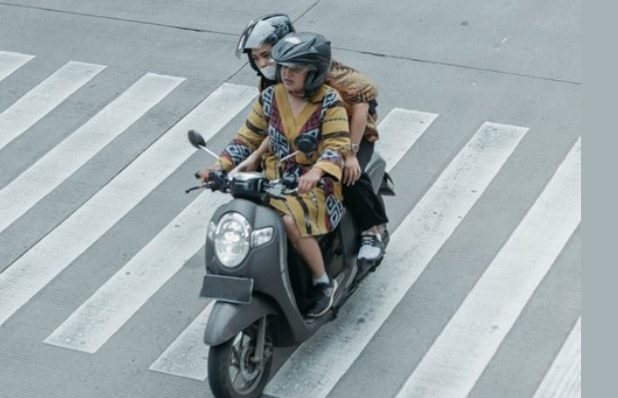Indonesia is a burgeoning market for electric vehicles (EVs), with a total addressable market that has surpassed $20 billion, despite minimal adoption.
The country’s EV two-wheeler penetration currently sits at 0.2% of the market, with an opportunity to exceed 10% over the next five years.
Indonesia’s EV adoption is notably lower than that of China and India, which are the world’s largest two-wheeler markets. This suggests substantial growth potential for EV motorbikes in Indonesia, but the nation’s importance to EV production expands beyond its borders.
As global EV demand accelerates, Indonesia, rich in motorbike culture and essential raw materials like nickel, has a unique opportunity to emerge as a world leader in EV motorbike manufacturing. This ambition can be realised by focusing on three strategic pillars: in-house research and development (R&D), localisation of supply chains, and a progressive regulatory framework.
The role of in-house R&D in carving out a competitive advantage in the EV industry cannot be overstated.
The behaviour of motorbike users in Indonesia is unique. Products designed to boost EV adoption need to recognise and address these needs. Merely offering a lower total cost of ownership is not sufficient; the product should also match existing gasoline motorcycles in terms of driving experience and price.
At MAKA Motors, we are not only motorbike users ourselves but also have a wealth of experience working with heavy motorbike users. One of our earliest steps was to conduct comprehensive market research, ensuring our assumptions about user behaviour aligned with the broader market’s preferences. This has deepened our insight into what Indonesian motorcycle users value.
Controlling chaos and valuing predictability
Compared to drivers in more developed markets, our research shows that Indonesian drivers are consistently vigilant because they expect chaotic conditions and obstacles on the road—they need an EV motorbike that they can rely on as much as they do on their current gas-powered motorcycles.
Drivers in major cities like Jakarta travel significantly longer distances than their counterparts in China and India, and we think that at least 100 km of actual driving range on a single charge is the minimum required for them to feel comfortable switching to EVs without inducing “range anxiety”.
We are building a significantly larger battery pack compared to most other EV motorbikes currently on the market, as well as a more powerful electric motor with a fine-tuned throttle response to deliver a driving experience comparable to gas-powered motorcycles. This is all while keeping our price point comparable to existing gas-powered options.
Made in Indonesia
The case for localising supply chains goes beyond just cutting down on costs; it’s about building a resilient and agile business. A recent study by McKinsey found that 22% of senior supply chain executives in the global automotive industry are already seeking to localise their supply chains.
In the case of Indonesia, a localised supply chain minimises dependencies on foreign components, reduces logistical lead time, and has the added benefit of job creation. Given the global trend of supply chain diversification, especially post-pandemic, a ‘Made in Indonesia’ stamp could become an additional asset in the global marketplace.
Our dream is for ‘Made in Indonesia’ to stand for reliable products that provide the best value for money. In the context of two-wheelers, Indonesia has developed a robust ecosystem of component suppliers who already make high-quality products at competitive prices due to the scale provided by the domestic market.
Shifting the regulatory focus is equally important. It should come as no surprise that progressive regulatory frameworks will be essential for nurturing innovation and entrepreneurship in the EV space. To stay ahead of the curve, regulators must foster an environment that encourages our kind of R&D and new business entry.
Current regulations in Indonesia have a propensity to favour established players and create barriers for startups. Simplifying licences, offering tax breaks for local R&D, and ensuring clear, easy processes for startups to access these benefits could boost the EV motorbike industry, encouraging local firms to both design and assemble their products.
A competitive moat
Investors looking to tap into the budding EV market should take a cue from our early backers, as it is critical to assess companies based on their long-term viability and not just short-term market entry speed.
One study shows that global automotive and assembly companies are reinvesting a remarkable 40% of their EBITDA back into R&D as a critical form of product defensibility. As such, investors should consider companies with robust R&D capabilities as a more secure bet for investment.
For regulators, now is the opportune time to redefine frameworks to reward risk-taking. Incentives such as tax breaks or reduced licensing fees for companies willing to invest in R&D and localised manufacturing could help spawn a new era of innovation in Indonesia’s EV space.
Long-term viability
Building a resilient EV ecosystem requires an unflinching focus on innovation and proprietary IP ownership, even if it comes at the cost of short-term profits and a longer time to market.
The road ahead for Indonesia to become a global leader in EV motorcycle manufacturing is straightforward but challenging. With rich natural resources, a workforce that is ready and eager, and a massive local market, Indonesia has all the ingredients to become a powerhouse in this sector.
Our vision is to make Indonesian EV motorcycles not just an alternative but the default choice for both domestic and international consumers. In addition to a little bit of elbow grease, we will just need to see more strategic investments in R&D, a commitment to localised supply chains, and a regulatory framework that is conducive to innovation and competition.
The author, Raditya Wibowo, is the CEO of MAKA Motors, an Indonesian electric motorbike firm backed by AC Ventures. The company specialises in vehicles that are tailored for local riders, offering a balance of range, power, and usability at competitive prices.



